Understanding the Wuhan Coronavirus through the Epidemic Triangle
This New York Times article attempts to cut through the headlines and use a simple concept called the “epidemic triangle.” Employed by epidemiologists since the discipline’s earliest days, it is indispensable in predicting whether localized outbreaks will transform into full-blown epidemics.
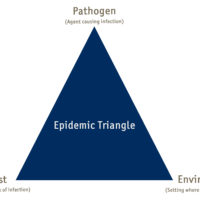
First Case Of Coronavirus In U.S. Detected In Traveler From China
A man is in isolation at Providence Regional Medical Center in Everett, Washington after returning home to Washington state after a trip to Wuhan China on Jan. 15, 2020. This is the first case in the U.S. of an infection with a new coronavirus, named 2019-nCoV, which causes respiratory symptoms like pneumonia. Cases have also… Read more »

New NIOSH toolkit for Protecting First Responders from Illicit Drug Exposure
A new virtual toolkit from NIOSH is intended to help protect first responders from exposure to illicit drugs. Illicit drugs include fentanyl, opioids, cocaine, cannabinoids, methamphetamines, heroin, cathinone, etc. This free resource features sharable training videos, infographics, and postcards.
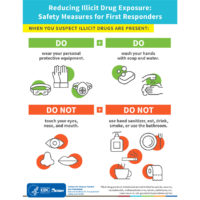
DQE Shower used in Birmingham’s Shaken Fury Exercise hosted by FEMA
The Shaken Fury Exercise focused on a simulated major earthquake in Memphis, Tennessee that will impact middle America including the state of Alabama. The exercise was designed to test communications, situational awareness systems and networks; simulate coordinated responses during structural damage and life-threatening mass casualty incidents; and coordinate responses to a HAZMAT incident caused by the earthquake.
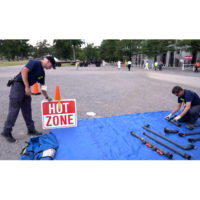
Staying Vigilant with Ebola Healthcare Preparedness
Recently, a Swedish hospital was reminded of the critical need for Ebola preparedness. A patient arrived at the Skane University Hospital on September 30, 2019, running a high fever after traveling in a region of Africa stricken by Ebola. The hospital placed the patient in isolation after discovering the patient’s travel history to an area where Ebola is present, and a fever.
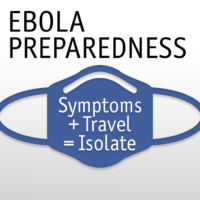
U.S. troops are falling to heatstroke as the military struggles to balance training with rising temperatures.
Rising temperatures from climate change pose a threat to military personnel, both at home and abroad. There have been a total of 11,452 heat injury incidents reported U.S. Armed Forces Military bases from 2014-2018. And since 2008, according to the Pentagon, at least 17 troops have died due to of heat exposure during training exercises… Read more »
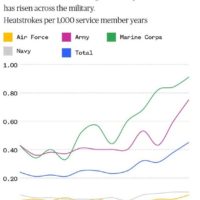
Dry Decontamination is an Important Step in Chemical Decontamination
The US Department of Health and Human Services (HHS), citing evidence in a peer-reviewed study, has added a new step to its decontamination guidance for chemical incidents. It calls for exposed people to first wipe themselves off with dry, absorbent materials, such as towels or washcloths before they pass through a water spray. “Disrobing and dry… Read more »
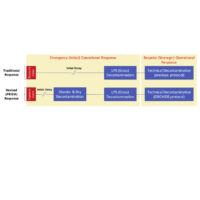
Congo’s Ebola Epidemic Is Declared a Global Health Emergency
The World Health Organization has declared the Congo’s Ebola Epidemic as a Public Health Emergency of International Concern (PHEIC). The committee sited recent developments where the first confirmed Ebola case occurred in Goma, a heavily populated provincial capital in the Democratic Republic of Congo with an airport with international flights. It is the second-largest Ebola… Read more »

US Ability to Manage Health Emergencies Rises. State Regional Inequities in Preparedness Persist.
The 2019 National Healthcare Security Index has been released. The scores indicate the ability to protect the health security of Americans from incidents like newly emerging infectious diseases, terrorism, and extreme weather conditions at the state and national levels. Healthcare emergency preparedness in the United States has improved significantly over the past six years according… Read more »
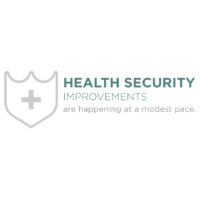
The DQE Slyde Evacuation Sled, a Reliable and Cost-Effective Solution for Non-Ambulatory Building Evacuation
DQE has announced the acquisition of the Slyde Evacuation Sled, an innovative expansion of its emergency evacuation product line. In the event of fires, natural disasters, attacks or other emergencies, moving injured or immobilized individuals can be a challenge. The DQE Slyde Evacuation Sled offers an easy to use, cost-effective and reliable solution to evacuate non-ambulatory occupants from any multi-story building. This exciting evacuation transportation device is a perfect fit with DQE’s philosophy of bringing high-quality, practical, and affordable equipment to the healthcare and emergency response community.
